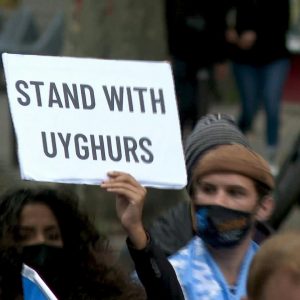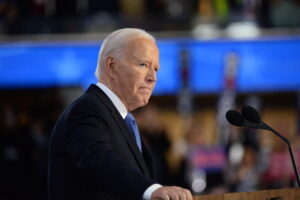Pakistan, Afghanistan agree to resume work on stalled projects
KARACHI, Pakistan (AA) – Pakistan and Afghanistan have agreed to resume work on several projects that have been stalled, including a four-nation energy corridor.
The much-awaited agreement was reached during a meeting between acting Afghan Foreign Minister Maulvi Amir Khan Muttaqi, and Pakistan’s State Minister for Foreign Affairs Hina Rabbani Khar in Kabul on Tuesday, said separate statements from the two countries’ foreign ministries.
Khar, who arrived in Kabul on Tuesday morning for a day-long visit, met with top interim Taliban government leadership, including acting Deputy Prime Minister Abdul Salam Hanafi and acting Minister for Mines and Petroleum Shahabuddin Delawar.
Kabul’s top diplomat informed Khar that his country is ready to resume work on the Turkmenistan-Afghanistan-Pakistan-India (TAPI) gas pipeline project, the CASA-1,000 (Central Asia-South Asia power project), the Trans-Afghan Rail project, and other projects that have been on hold for a long time.
The $7 billion TAPI project, which was supposed to be completed by the end of 2017, had been pushed back due to the Taliban’s war against the US-backed Afghan regime, which ended in August last year.
A 1,600-kilometer (994-mile) pipeline will transport 3.2 billion cubic feet of natural gas per day from Turkmenistan to the three South Asian countries.
CASA-1000 is a $1.16 billion project currently under construction. It will allow surplus hydroelectricity from Kyrgyzstan and Tajikistan to be exported to Afghanistan and then to Pakistan.
The acting Afghan foreign minister highlighted issues pertaining to the release of imprisoned Afghan refugees in different Pakistani jails, bilateral and transit trade, and treatment of refugees in Pakistan, said a statement issued by his ministry in Kabul.
According to the statement, Khar assured the Afghan side that Islamabad would take immediate steps to resolve these issues.
Although Pakistan is thought to have had some influence over the Taliban, the two sides are still struggling to resolve a number of long-standing issues, including cross-border attacks on Pakistani security forces and fencing of a 2,640-kilometer (1,640-mile) porous border between the two neighbors.
Afghanistan does not recognize the de facto border region between the two countries, commonly known as Durand Line, on the grounds that it was created by a British colonial regime “to divide ethnic Pashtuns”.
Islamabad, however, maintains that the Durand Line is a permanent border.










